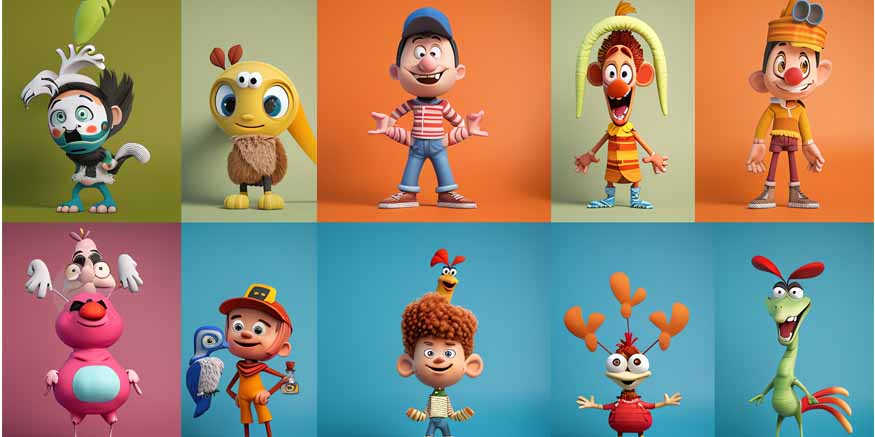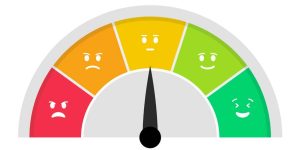Cartoon Characters: Their Effects on Children

Children are influenced by cartoon characters that change their behaviour, morals, and beliefs. These cartoon characters often act as role models for kids, affecting their emotional and social growth. Cartoon characters have a huge and diverse effect. They may encourage good qualities like bravery and kindness or promote bad behaviour.
This article explores the various effects of cartoons on child development. It will look at the advantages and disadvantages of their influence on kids’ lives.
Positive Effects of Cartoons on Child Development
The fact that cartoons have many good effects on kids’ behaviour shows how important they are to them. These are some positive effects of cartoons on child development:
- Helps Children Get an Early Start on Learning – Children may benefit from an early education through cartoons. Cartoons positively impact kids, as seen by the educational ones that teach colours, shapes, and numbers. Children may learn basic ideas from these cartoons in an engaging and dynamic style. It makes learning fun. Children find learning enjoyable because of the bright colours and animated images.
- Language Development – Cartoons may introduce your kids to a variety of languages. It can help in their language development. For example, letting kids watch cartoons in your language can help in their language learning. Kids’ speech patterns and pronunciation may also be improved by viewing different cartoons.
- Cognitive Development – Watching cartoons can help build your child’s cognitive skills. It can help in a child’s development of thinking and logic, visual and auditory processing, and increased and focused attention.
- Relieves Stress – Cartoons are funny to kids, and they often laugh aloud at the actions of the cartoon characters. Laughing relieves stress and boosts self-esteem. It also increases immunity and releases endorphins, which will make them feel good.
- Encourages Bonding and Family Time – Families may interact and spend precious time together while watching cartoons. Watching cartoons as a family can create beloved memories and allow talks about themes, characters, and lessons presented in the shows, improving family bonds.
Negative Effects of Cartoons on Child Development
Cartoons may also have negative effects on a child’s behaviour and development.
- Encourages Violence – Children who watch violent cartoons may grow more aggressive in real life. They may also think that no one feels pain. This might be because the cartoon characters always come out of violent or tragic events unharmed.
- Teaches Foul Language – Cartoons often use language that is inappropriate for kids to watch. Since they are influenced, children may begin to use foul language in real life that they hear from cartoons.
- May Lead to Health Problems – Due to inactivity and unhealthy habits, spending too much time in front of a television watching cartoons may lead to many health problems. These include lack of nutrition brought on by poor eating habits, obesity, and visual issues.
- Encourages Unsocial Behaviour – Many cartoons promote aggressive behaviours and provide kids with bad ideas. Then, some cartoons support aggressive behaviour, bratty behaviour, and sexual hints. These may have an impact on your child’s conduct and lead them to believe that acting violently, spoilt, or aggressively is normal.
Tips for Parents to Choose Good Cartoons
Choosing what to watch might be difficult since there are so many cartoons available. It might be especially hard when deciding what is suitable for your kids. Here are some tips for choosing the appropriate cartoons for your kids:
- Check Reviews and Ratings – Check ratings and reviews to learn more about the topics and possible risks of each show. Think about what your kid wants while making a decision. When choosing cartoons for your children, ratings and reviews might help you make a wise choice.
- Look for Meaningful Cartoons – Ensure that the cartoons your children see provide moral lessons beyond just for fun. Look for stories that promote honesty, kindness, decency, tolerance, and good self-worth. You may choose and review stories as a parent to teach important life lessons to your kids. Pay close attention to what you expose kids to. Consider each cartoon in detail before deciding whether or not it is proper.
- Avoid Violence – Watching cartoons is a common kid pastime. So, it is important to keep an eye on the messages they’re taking in. Rather than shows that promote violence, choose ones that encourage friendship, and respect. Teach your children that while times are difficult, turning to violence is never the solution. Set an example for others to follow by choosing peaceful content and talking about the reasons why violence is never right.
- Watch the Cartoon First – It’s wise to see the show previews personally to make sure your kid is watching safe cartoon content. Even while reading reviews and ratings might be useful, you can ensure that the animation is suitable for your family. Everyone engaged will have a fun experience as a result of this. When allowing your kid to watch a cartoon, spend some time watching it yourself.
Cartoon characters have a big impact on children’s views, behaviours, and even goals. Cartoons can amuse and educate. But, there are also big effects of cartoons on child development. To lessen harmful effects, parents and teachers need to keep an eye on the material and promote critical thinking.
Billabong High International School strongly emphasizes holistic development. We encourage parents’ engagement and careful instruction to promote a balanced attitude to media intake. By encouraging a balanced approach to cartoon viewing, you can use the power of these loved characters to encourage creativity, empathy, and cross-cultural understanding in the next generation. To learn the details regarding admission, contact us today!








